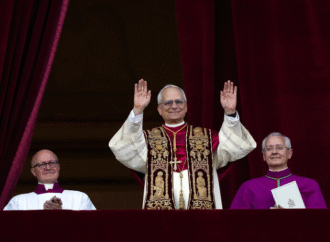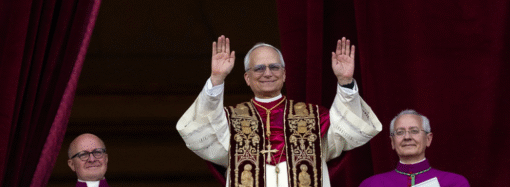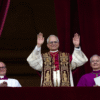In the COVID-19 battle, Bill Gates wants us to believe that there is “no middle ground” between the decision to save lives or save the economy.
Gates was adamant, “It’s very irresponsible for someone to suggest that we can have the best of both worlds. Bring the economy back to money is much more of a reversible thing than bringing people back to life.”
Gates’ claim that there is “no middle ground” is immediately falsifiable. Presumably, Gates is buying food, or having others purchase food for him. In the supermarket, we are exposed to other shoppers and supermarket staff. In stores, and at home, we handle packages that may have the coronavirus on their surfaces.
Supermarket cashiers, Walmart cashiers, and Costco cashiers meet hundreds of shoppers a day. If Gates is right, we are allowing them to risk their lives for relatively meager salaries.
Some chains have installed sneeze guards to offer some protection to workers. This change is one of the many ways businesses and individuals will continue to find a “middle ground” and adjust to the coronavirus.
Clearly, Gates believes that some risk is acceptable. If he didn’t, we would all wait at home for government workers in hazmat suits to deliver us food.
If no risk were acceptable, we would demand that the government allow only one car on the road at a time to reduce accidents.
When Gates says “we have no choice,” but to listen to him and the experts he promotes, he is appealing to his authority rather than to established science.
In a 2003 lecture at California Institute of Technology, Michael Crichton said: “Consensus is invoked only in situations where the science is not solid enough.” There is no need to convince others the “sun is 93 million miles away.” No one argues about real science.
In his book Thinking, Fast and Slow, Nobel laureate, Daniel Kahneman reports on the work of Paul Slovic. Slovic explains how our politics, and other pre-existing preferences shape attitudes towards risk. Slovic’s work points to a startling conclusion. Despite what Gates would like us to believe, there is no such thing as objective risk.
Eight hundred leading “experts in public health, law, and human rights, with experience in previous pandemic responses” signed a petition cautioning against draconian lockdowns:
“Mandatory quarantine, regional lockdowns, and travel bans have been used to address the risk of COVID-19 in the US and abroad. But they are difficult to implement, can undermine public trust, have large societal costs and, importantly, disproportionately affect the most vulnerable segments in our communities.”
These experts, many of whom are professors in medical schools, pointed instead to “voluntary self-isolation measures” that “are more likely to induce cooperation and protect public trust than coercive measures.”
It’s easy for the wealthy to say there is no middle ground, yet as these medical professionals point out millions will soon find themselves in desperate times:
“Government and employers must recognize that low-wage, gig-economy, and non-salaried workers who are unable to work because of quarantine or movement restrictions or other disruptions to the economy and public life face extraordinary challenges. They may find it impossible to meet their basic needs, or those of their family.”
In the rural college town near my home, students have gone home, and businesses are open but nearly empty. Family businesses that have existed for generations may fail.
Economics professor Don Boudreaux admits he is no expert on the coronavirus, yet he is one of the world’s leading experts on how markets operate. He writes, “Most of what constitutes our prosperity is a flow of finely coordinated activities each performed by highly specialized workers. In normal times this flow of activities is largely out of sight.”
Today, because of shortages, consumers are now more aware that goods “don’t fall manna-like from the heavens onto retailers’ shelves.” Nor, as Boudreaux writes, “are months’ worth of inventories lingering in warehouses idly waiting to be accessed.” Instead, “Every moment of every day hundreds of millions of specialists – from CEOs to accountants to factory workers to retail clerks – work to ensure that prosperity is continually produced and flowing.”
Boudreaux is clear about the origin of your wealth, my wealth, and Bill Gates’ wealth: “Ultimately, our wealth consists chiefly in the ongoing willingness and ability of millions of strangers to work for us daily. Any obstacle to large numbers of people performing their daily jobs means hardship for us all.”
Gates, too, “would soon find himself impoverished if the unheralded daily creation of wealth grinds to a halt.”
The coronavirus consequences Gates points to are terrible, but so are the implications of a wrecked economy. There is a middle ground. Faced with uncertainty, reasonable, well-meaning people can disagree where that middle ground is.
—
[Image Credit: Wikimedia Commons-World Economic Forum, CC BY-SA 2.0]
Image Credit: [Image Credit: Wikimedia Commons-World Economic Forum, CC BY-SA 2.0]
















Leave a Comment
Your email address will not be published. Required fields are marked with *